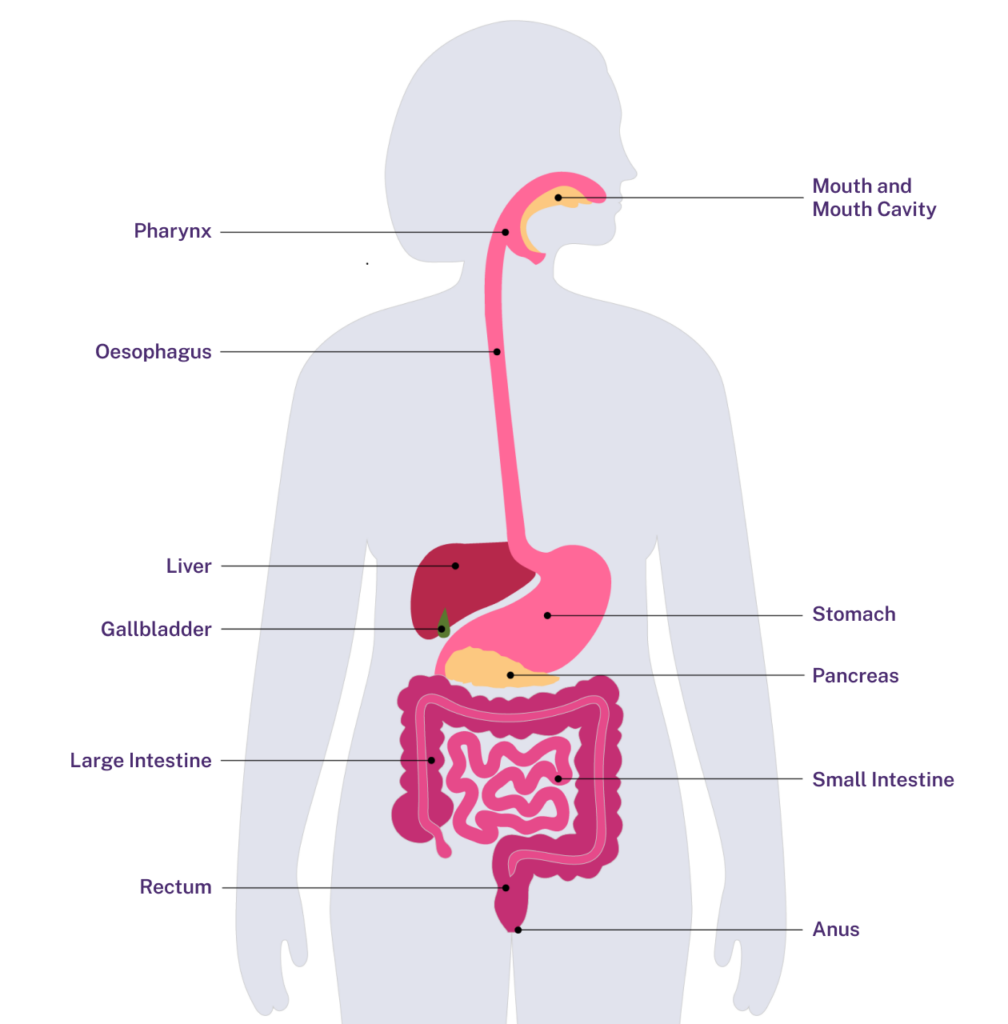Bowel and digestive system
Digestive system
People with spinal cord injury may experience changes to their bowel function. The large intestine in our digestive system uses muscular, wave-like contractions, known as peristalsis, to propel faecal mass towards the rectum. The rectum holds faecal bulk ready for evacuation. The anus releases faeces during defecation.
The defecation process occurs when there is communication between the brain and the external anal sphincter via the spinal cord (at S2-4). When sufficient stool enters the rectum, stretch receptors send messages to the brain, via afferent pathways, to nerves that make us aware of the urge to defecate.
At the same time, the internal sphincter relaxes and the anal canal establishes if the contents within it are solid, liquid or gas. It is both the urge and recognition of the contents in the anal canal that allows us to choose whether to defecate or put it off until a later time.
When we do choose to follow through with defecation, added abdominal pressure aids elimination. When innervation is intact (to the lower thoracic cord T6-12), abdominal straining, known as the valsalva maneuver, increases intraabdominal pressure. As the external anal sphincter relaxes, stool from the rectum is forced out allowing for defecation.
We can restimulate the urge to defecate with abdominal straining, but this is not as effective as using the urge created by the natural reflex. If we choose not to defecate, the external sphincter remains contracted through motor impulses sent down efferent pathways. The rectum relaxes further, to accommodate more stool, and the urge to defecate gradually reduces and disappears.

Brain communicates the urge to defecate with the external anal sphincter via spinal cord at S2-4.
Spinal cord injury
Choose to defecate now
Stool expelled
External anal sphincter relaxes + valsalva maneuver increases intraabdominal pressure
Choose not to defecate right now
Reduced urge to defaecate
External anal sphincter stays contracted + rectum relaxes => increased stool in rectum
A spinal cord injury can impact the nerves connected to muscles that line the large intestine, rectum and anus. Changes to these nerves reduce peristalsis through the bowel, resulting in faeces taking longer to reach the rectum.
As faeces pass through the large intestine, it reabsorbs water from the faecal mass through the intestinal wall. The longer it takes to pass, the more water is absorbed from the faeces and the harder the stool becomes.
Changes to the nerves supplying the muscles in the rectum and anus can result in an inability to predict or control bowel movements. Thus, people with spinal cord injury may experience constipation and/or unplanned bowel movement.